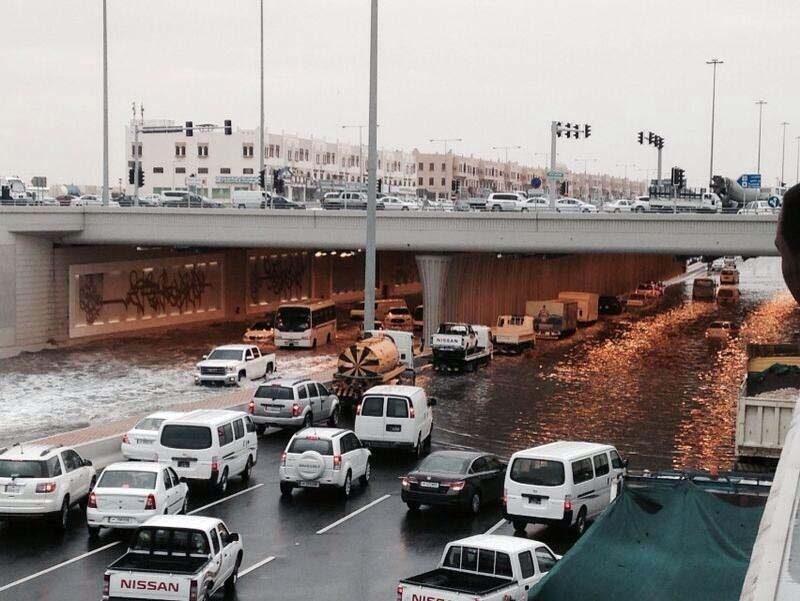
Qatar’s Public Works Authority (Ashghal) and the contractor working on the Salwa Road underpasses that flooded in March have been found responsible for the incident, according to an investigative committee set up by the nation’s Prime Minister.
The panel of engineering experts was formed the day after the flooding, after questions arose about why the newly built road’s drainage system had been unable to cope with surface water after continuous rainfall on March 26.
The flooding caused many cars to become stranded in the water, and led to the temporary closure of Qatar Decoration underpass, prompting traffic chaos in the surrounding areas.
Report findings
The root cause of the flooding identified in the report – the lack of an outlet for the road’s drains – comes as no surprise, as Ashghal disclosed this fact soon after the flooding.
In a statement, it explained that while the road had a drainage network with a high capacity, this was not yet connected to an outlet, so all rain water simply pooled in the existing pipes, and was removed by suction pumps as required. It added that a planned link to the sea “via the Abu Hamour network” had not yet been completed.
The PM’s committee report suggests several reasons for this oversight, including:
- A lack of coordination between key departments at Ashghal, the Salwa Road project’s consultant and its project director;
- A failure to follow up on the road project to make sure that the sewage system worked properly, particularly by the Expressway and Operation and Maintenance Departments at Ashghal;
- The absence of a crisis management system at Ashghal; and
- A lack of coordination between Ashghal and the National Command Center during the emergency.
Recommendations
Ashghal has not yet commented on the report’s findings.
Having established the cause of the problem, the report suggests ways of preventing such a problem from happening again.
These include the setting up of a permanent emergency and crisis management system at Ashghal, and the establishment of a new system to monitor how well the sewage network is coping during periods of heavy rainfall.
The decision to release the findings of the report to the general public comes amid a government push to increase transparency. Other recent initiatives include a decision to name and shame violators of the country’s food law, and a move to establish an “open data” policy.
In a statement this week, the flooding investigation committee said:
“We are making the findings public to make it clear what had happened, respecting public opinion and their right to know. The state is keen to remain transparent and realistic and protect the lives of people and public property.”
Thoughts?







